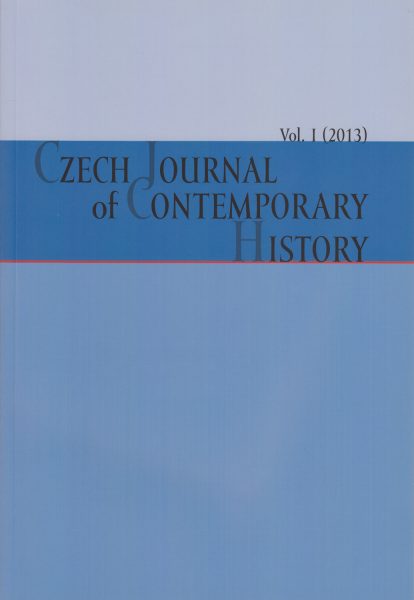An Unending Story with a Sudden End – and Its Immediate Consequences for East-Central Europe (The Numerous Impulses from the Prague Conference on the Cold War)
An Unending Story with a Sudden End – and Its Immediate Consequences for East-Central Europe (The Numerous Impulses from the Prague Conference on the Cold War)
Author(s): Petr KaplanSubject(s): History, Social Sciences, Scientific Life
Published by: AV ČR - Akademie věd České republiky - Ústav pro soudobé dějiny
Summary/Abstract: The author returns to the history conference Dropping, Maintaining and Breaking the Iron Curtain: The Cold War and East-Central Europe Twenty Years Later, which took place in the Straka Academy and in the Lichtenstein Palace, Prague, from 19 to 21 November 2009. He provides a detailed report on the conference proceedings.It was organized to mark the twentieth anniversary of the collapse of the Communist regimes in Central and Eastern Europe, by the Institute for Contemporary History of the Academy of Sciences of the Czech Republic, together with the Office of the Czech Government and with the assistance of the students from the Institute of International Studies, Faculty of Social Sciences of Charles University in Prague.About thirty historians from eleven countries of the formerly divided Europe and the United States took part in this meeting of top historians of the Cold War to discuss the records that are gradually being made accessible to scholars and the public and also the changing interpretations of this history. During the conference the then Czech Prime Minister, Jan Fischer, awarded seven historians – Vojtěch Mastný, Thomas Blanton, Alex Pravda, Mark Kramer, Vilém Prečan, William Taubman, and, in memoriam, Saki Dockrill – the Karel Kramář Memorial Medal for the important contributions they have made to our knowledge and understanding of modern Czech history on the international level.In the introductory panel discussion, the historians, together with two important actors in the events, Jiří Dienstbier and Alexandr Vondra, discussed the forming of new order in Europe in the early years after the end of the Cold War. The key processes here were the reunification of Germany, the dismantling of the military political institutions of the Eastern bloc, and the eastward expansion of Western integrating institutions – NATO and the EU. The dynamically forming reality, at the same time, put an end to conceptions developed by some leading politicians (François Mitterrand’s idea of a European confederation and Mikhail Gorbachev’s“Common European Home”). In a fruitful exchange of views it was repeated several times that the form of the European order which had developed after the Cold War was not something obvious and the eastward expansion of NATO was not something that any of the actors had expected.In the subsequent panels, the participants discussed the matter of whether competing for Central Europe was the main cause of the Cold War, as well as considering the role of strategic planning and nuclear weapons and the counter-efforts to maintain or to overturn the Cold War status quo. The high point of the conference,according to the author, was the panel discussions devoted to Germany – the division of the country, the existence of two German states side by side, and the reunification – and particularly the end of the Cold War. The conference closed with more general reflections on Communism and the Cold War.
Journal: Czech Journal of Contemporary History
- Issue Year: I/2013
- Issue No: 1
- Page Range: 131-148
- Page Count: 18
- Language: English

